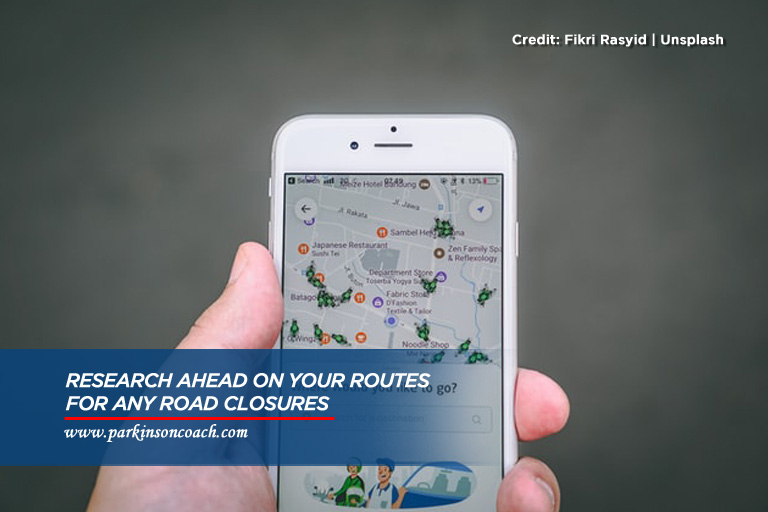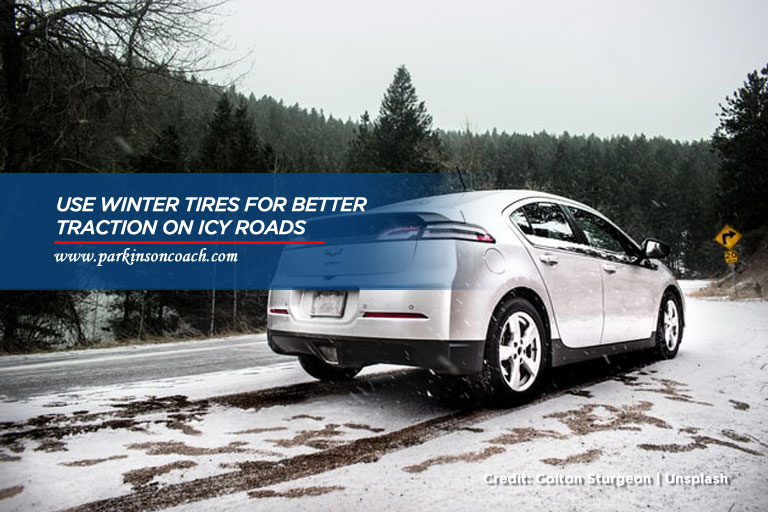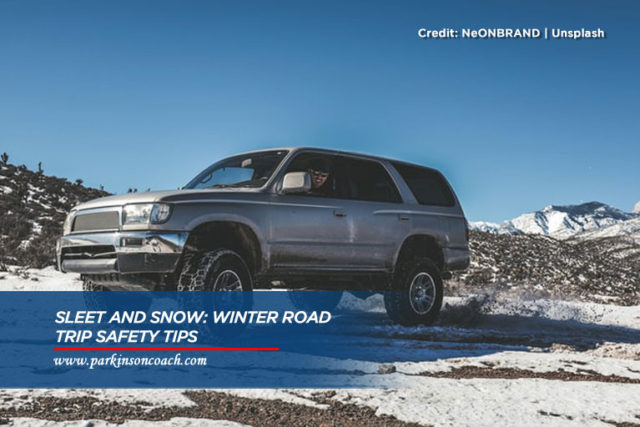Whether you’re travelling by yourself or with your loved ones this winter, going on a road trip is a safe way to do so. If you’re planning to go road tripping in the winter weather, you must be prepared with the right knowledge and equipment to drive safely through sleet and snow.
Here are some safety tips to keep in mind for your winter road trip:
- Research for the Right Routes

The route usually taken during the summer may not be as suitable for winter travel. Authorities may restrict speed limits on some roads or even close them down due to snow. That’s why it’s crucial to do your research ahead of time and know of any road closures.
Roadblock incidents or sudden storms can lengthen your entire journey. Checking the local news sources and websites for the latest updates will help you avoid these inconveniences.
- Pace Yourself in Your Itinerary

Driving during the colder season does not only affect road conditions or the length of daylight hours but your own personal wellbeing as well. Winter weather can take a toll on your energy, and driving can tire you out faster. It’s safe to assume you may be travelling at a slower pace than you would in summer.
When you’re listing things down on your road trip planner, it’s crucial to set reasonable expectations and to give yourself extra time. With the inclement weather that you’ll be facing, you should be driving carefully to avoid putting yourself and others in danger. Make sure to run below the speed limit and increase your following distance.
- Take Note of Local Recovery Services Numbers
Although you hopefully wouldn’t have to use it, it’s also crucial to write down the numbers of local recovery service along your route.
Keep these emergency contacts on your notes and your phone, especially if you’re planning to drive through rural areas that don’t have reliable cell service. Without a decent cell connection, you won’t be able to use the Internet to search for them. Having this information at hand allows you to contact and inform them of your current situation right away.
- Tune-Up Your Vehicle Before Travelling

The cold weather can affect the mechanical parts of your car, so identifying any potential vehicular issues is necessary before it’s time to go. More specifically, it can negatively affect its battery and cooling system, so make sure that they’re in their best condition.
There are also other items to keep in mind, including belts, cables, hoses, and spark plugs. While these can stop working regardless of the season, the potential consequences can be more grave if it occurs during a snowstorm. That’s why you should give your car a tune-up before the road trip.
- Inspect Your Vehicle’s Fluid Levels
Before going on a long winter road trip, checking your vehicle’s fluid levels is also a must. Compared to driving in sunny weather, the water might freeze, and the oil may lose its efficacy.
Inspect all fluid levels before the road trip, including:
- antifreeze, brake fluid
- engine oil, power steering fluid
- transmission fluid
- windshield wiper fluid
Make sure your tanks are full because having these containers filled prevents them from freezing. More particularly, watch over your windshield wiper fluid, as the weather can quickly consume it. You can avoid this by adding special washer fluid antifreeze.
- Prepare Your Tires for the Trip

For a successful and safe road trip, the tires must be capable of adapting to the climate. Winter might bring snow and ice to your selected routes, which can be dangerous if not addressed. Check for weather updates to see whether you’re going to be driving through plowed roads or if you’re going to get past through icy ones instead.
Bring snow chains to deal with the former. However, consider switching your current tires with winter tires should you have to drive through ice-covered roads. Winter tires can withstand and have better traction for such extreme conditions. Also, keep tabs on your tire pressure as you drive. It can rise or drop with every 10 degrees of temperature change.
- Familiarize Yourself With Winter Driving Techniques
In 2020 alone, nearly 1,500 accidents occurred during heavy snow, over 900 collisions happened while it was snowing lightly, and over 175 mishaps were recorded during hail or sleet.
Take extra precautions when driving. Brush up on your winter driving techniques before leaving. Avoid getting too close to the vehicle in front of you and leave extra space. Accelerate more gently and drive slowly. To see the lane markings, stay in your lane and keep your lights on. Know how to slow down in the snow and don’t aggressively slam the brakes to stop.
- Don’t Travel During Rush Hour

If you wish for a safe journey ahead, avoid starting during rush hour. It especially applies if you’re going to pass through big cities, or if you live in one. With the number of vehicles present in such inclement weather, it can increase the possibility of vehicular accidents.
Schedule your road trip accordingly to make it safer, and so you wouldn’t have to deal with potential stressors like traffic jams.
What to Pack in Your Car
Apart from planning your routes and checking your vehicle, you also have to bring along the following road trip essentials:
- Cell Phone and Charger – Communication is necessary during your road trip. Make sure your phone has a full battery or bring a power bank.
- Emergency Car Kit – Always have an emergency car kit at the ready, which includes food and water, a first aid kit, extra clothing, and shoes.
- Extra Windshield Washer Fluid – As mentioned, the cold weather can quickly consume this fluid. Prepare a spare bottle before leaving.
- GPS and Paper Map – Although GPS is helpful for most situations, there may come a time when it’ll have trouble connecting to the satellite. Remember to bring a paper map for your road trip.
- Ice Scraper – Bring an ice scraper to remove snow, frost, and ice efficiently from your car’s windows and windshield.
- Jumper Cables – Your car battery can wear out in winter. Your jumper cables and another vehicle can help give yours a boost, in case this happens.
- Cat Litter or Sand – You may get stuck on a slick road during your trip. Using sand or cat litter can provide you with the traction you need to get out.
While going on a road trip this winter can be an enjoyable adventure, there are many things you need to consider to ensure your safety. Following these tips can help you enjoy your journey and avoid any possible issues on the way.
Do you wish for a safe road trip in Canada? Let us help turn that wish into your reality. Parkinson Coach Lines provide minibus rentals for safer travels. We adhere to strict disinfection measures which protect both our passengers and staff. With our extensive list of amenities, you can rest assured that you’ll get to your destination in comfort. For inquiries, please contact us at (905) 451-4776 or email us at info@parkinsoncoach.com.







